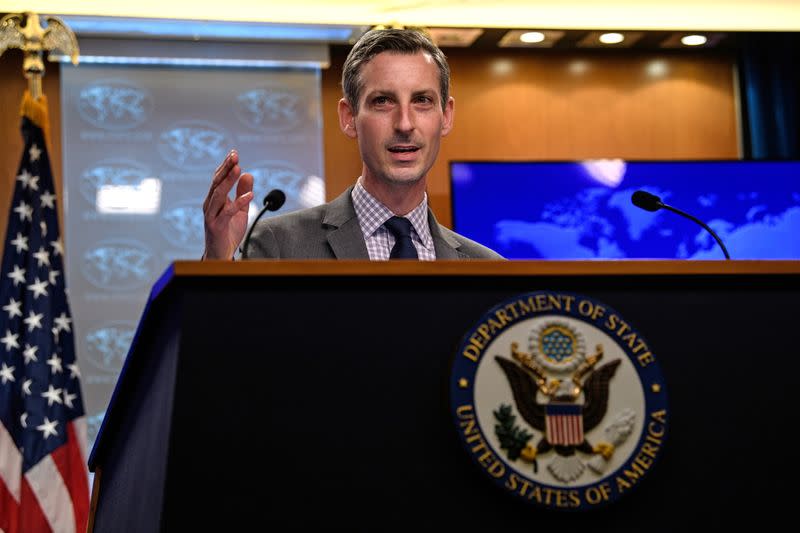U.S. condemns China's Hong Kong moves, working to 'galvanize' action against abuses

WASHINGTON (Reuters) - The United States on Friday called China's moves to change the Hong Kong electoral system a direct attack on its autonomy and democratic processes and said Washington was working at "galvanizing collective action" against Chinese rights abuses.
Earlier on Friday, Beijing proposed legislation that would tighten its increasingly authoritarian grip on Hong Kong by making changes to the electoral committee that chooses the city's leader, giving it new power to nominate legislative candidates.
The measure, set to be approved during a week-long session of China's rubber-stamp parliament, would further marginalize a democratic opposition decimated after Beijing imposed national security legislation following anti-government protests that rocked Hong Kong in 2019.
The United States condemns China's "continuing assault on democratic institutions in Hong Kong," State Department spokesman Ned Price told a regular news briefing.
Price called Beijing's moves "a direct attack on Hong Kong's autonomy ... freedoms and the democratic processes."
"If implemented these measures would drastically undermine Hong Kong democratic institutions," he said.
Price said Washington was working to rally allies and partners to speak with one voice in condemning China's abuses against minority Muslims in Xinjiang and the "repression" taking place in Hong Kong.
"I don't think anyone is satisfied yet, with the international response to what has taken place in Xinjiang. And that's precisely why we are, in many ways, galvanizing the world, galvanizing collective action, to make clear that these sort of abuses against human rights in Xinjiang and elsewhere will not be tolerated," he said.
The Biden administration, which took office in January, has endorsed a determination by the former Trump administration that China is committing genocide in Xinjiang and said that the United States must be prepared to impose costs on Beijing for its actions there, its crackdown in Hong Kong and threats towards Taiwan.
(Reporting by Jonathan Landay, Simon Lewis, David Brunnstrom and Daphne Psaledakis; Editing by Leslie Adler and Sonya Hepinstall)

